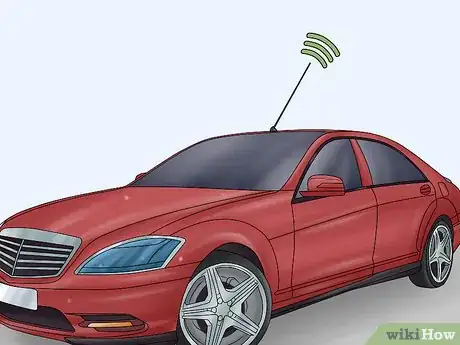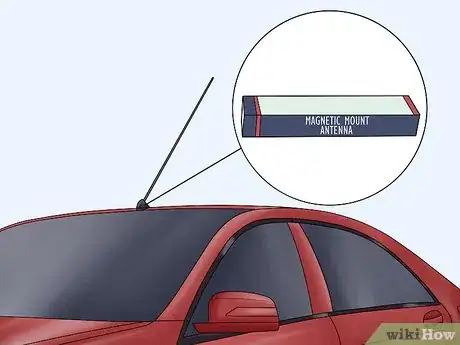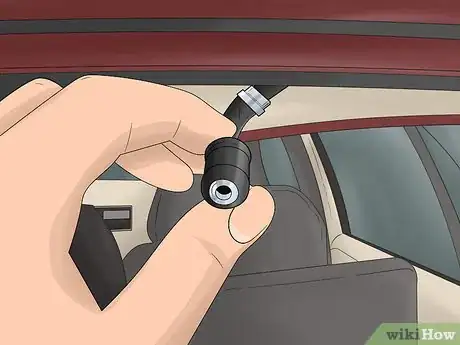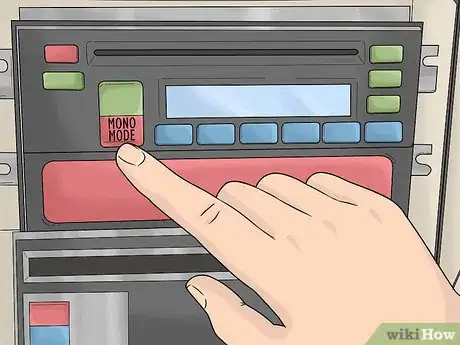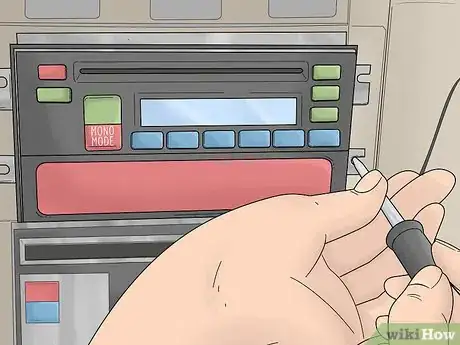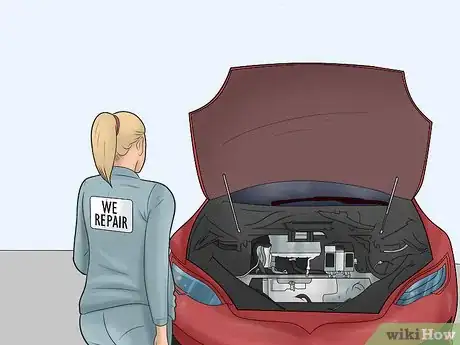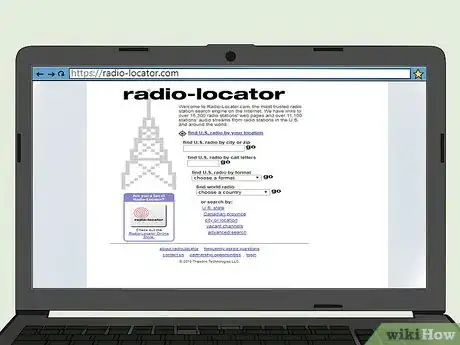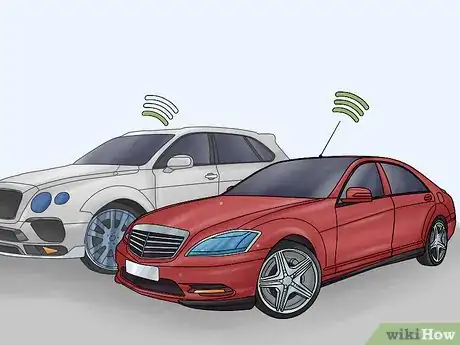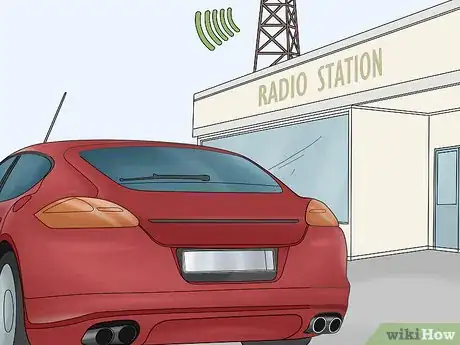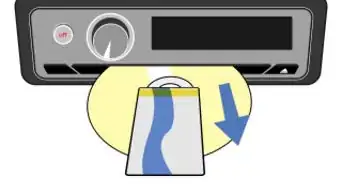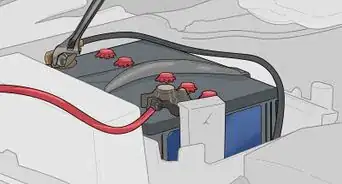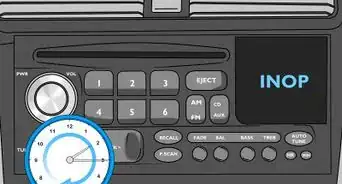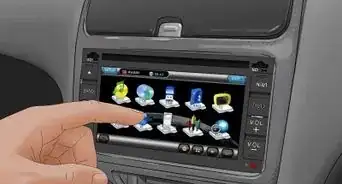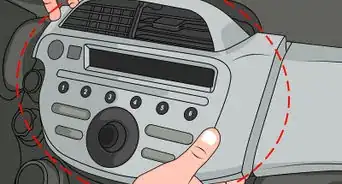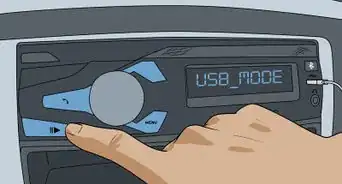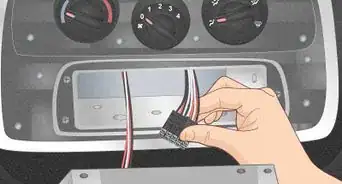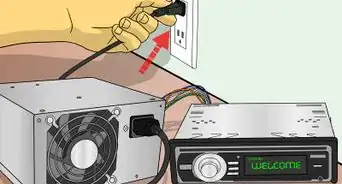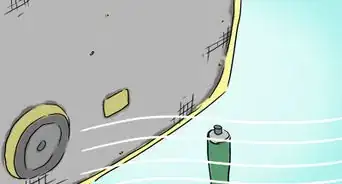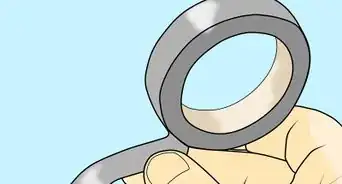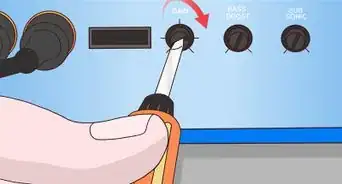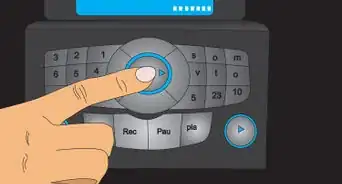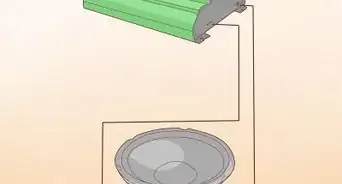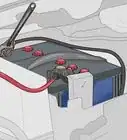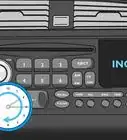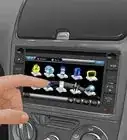wikiHow is a “wiki,” similar to Wikipedia, which means that many of our articles are co-written by multiple authors. To create this article, volunteer authors worked to edit and improve it over time.
This article has been viewed 56,232 times.
Learn more...
Car radios are one of the most common ways people listen to radio. We almost always have access to them, unlike portable radios. However, it can be frustrating when you start to have reception problems. Cars usually come with decent radios, so if you're having poor reception, there is probably some form of problem. Cars can have many unique reception problems that are different than portable radios, which is the frustrating part. However, you may not realize how easy some of these problems are to troubleshoot.
Steps
Troubleshooting the Car
-
1Make sure your antenna is extended. Unlike with portable radios, many of us don't really pay attention to our car's antenna. However, car radio antennas can be retracted. The antenna is what amplifies the signal in the first place, so you can imagine how this would effect your reception.
- If you get a car wash, make sure no one forgot to extend the antenna after retracting it for the wash. Keep in mind that anything could push down the antenna, even someone accidentally bumping it while walking by.
-
2Try replacing the antenna. A bad antenna could also be the cause of your poor radio reception. It's possible that gradually overtime the connection between the antenna and the car got damaged in some way such as rusting. In this case, replacing the antenna could solve the problem.
- Make sure its the same type of antenna that was previously on your car. Cars can have different antennas.
- The antenna is the most important factor of radio reception behind your actual location, so you should focus on it.
Advertisement -
3Make sure the wires connecting the antenna aren't damaged. If replacing the antenna didn't help, then it could be that the wires carrying the signal are damaged. Try twisting the antenna while listening to a station.
- If the signal keeps dropping and coming back in, tighten the antenna and get the wire connections fixed.
-
4Try switching your car stereo to "mono" mode. Many cars will probably not have this as an option, but if yours does, it could be responsible for slightly better reception in another car. If you don't see this option, your car is probably doing it automatically.
- While stereo reception is fine for strong stations, it can actually increase noise with a weaker station. If the station is weak, you may notice it coming in better when you switch to mono.
-
5See if the car's stereo system is bad. While your car's head unit is probably pretty sturdy, that doesn't mean it couldn't have become damaged. If you continue to have bad reception despite effort, check to see if the radio itself has gone bad.
- You should get a new stereo system if your current one has gone bad. It will be much cheaper than repairing the current one.
-
6Check to see if part of your car is causing interference. Cars come with all sorts of different parts, some of which may be causing interference to your radio. A mechanic can check and see which parts may be leading to interference. This is different than a portable radio, where the only real sources of interference are other objects.
- Things like the engine and the alternator are common culprits.
Checking the Station's Strength and Location
-
1Try using a website that looks for radio stations nearby you. A good way to see whether the problem is you or that you are far away from the station is to use a website. These websites will tell you both the location of stations and their strength where you are located.
- Radio-locator.com is one good option for locating stations.
-
2Understand that reception may be poor in an urban or mountainous region. If there are large objects in between you and the transmitter that block FM radio waves, your reception will be impacted. In this case, the only way to really get around the problem is a good quality radio and antenna.
- Location is said to be one of the most important factors of radio reception.
-
3Check using a car with good reception. If you feel you are having problems picking up a certain station, check using another car that isn't having a problem. If that car can't easily pick it up, your car probably won't be able to. A weak signal is a weak signal no matter what.
- Radio stations are required to broadcast at a certain strength. They can't just start broadcasting with a stronger signal.
-
4Check to see if a nearby station that's more powerful is affecting the signal. If you have a local station that's strong and operating on a close frequency to what you want to pick up, your radio will probably lock onto that station. This is just how the digital radio works.
- The only solution to this really is an analog radio, and car stereos don't usually have analog radios unfortunately.
